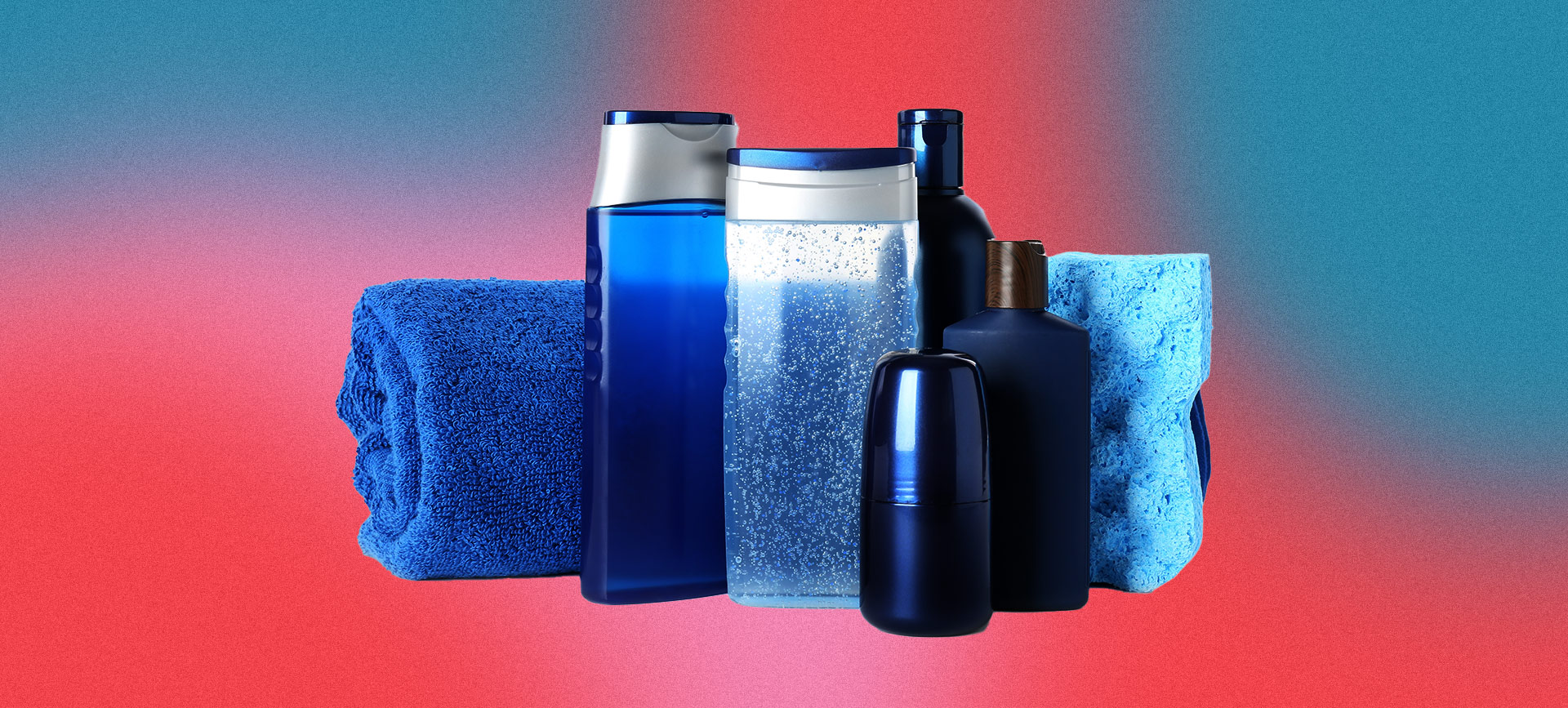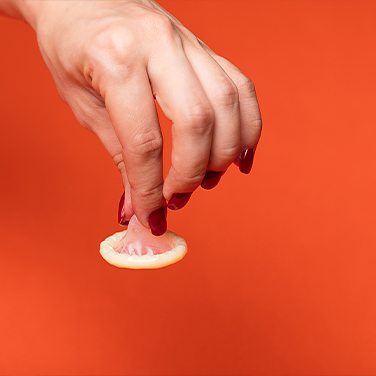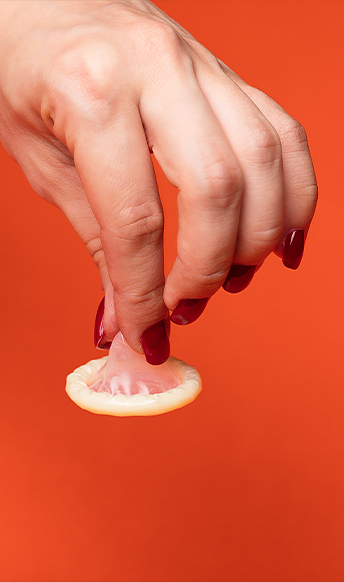When it comes to penises—and uncircumcised ones in particular—health and hygiene go hand in hand.


Health and Hygiene of the Penis: An Owner's Manual
There's a world of information at our fingertips, but this isn't always helpful when it comes to Googling medical symptoms—two wrong clicks and you're in an endless spiral of doom, convinced you're about to die.
You'll be glad to know the truth is often less scary, and most penile health problems can be effectively managed when diagnosed early and treated promptly. There are a few common conditions and issues to be aware of, so for the sake of your mental well-being—and your browser history—here's a handy guide to staying on top of health and hygiene.


It's fair to say you're probably fairly well-acquainted with your penis, but the best advice is to get to know your own anatomy so you can spot any minor changes with ease. Generally speaking, a healthy penis should have smooth skin with no blisters or spots and no murky discharge coming from the urethral opening. This can be a sign of infection.
When it comes to uncut dicks in particular, health and hygiene go hand in hand. There's a smelly, white goo called smegma—most penis-owners will recognize the scent, which has earned it the nickname of "dick cheese"—that builds up at the tip of the penis and truly thrives underneath the foreskin. It's a natural substance made up of oil and dead skin cells, but, without regular cleaning, it can start to solidify, resulting in irritation, inflammation and, in some extreme cases, conditions such as balanitis.

There are simple steps you can take to avoid the dreaded "dick cheese," the first of which is to wash your penis daily with a mixture of mild soap and water, making sure to gently pull the foreskin back if uncut. Don't be tempted by the lure of a heavily-scented cock, either—strong-smelling soaps can cause irritation, so keep it basic. Dry gently but thoroughly with a towel afterward.
It's important to let your balls breathe, so skip the extremely tight underwear, steer clear of synthetic fabrics and stay on top of your laundry to avoid any nasty scents. It's also good to accept that dicks can dribble after urination, so wiping the tip with a tissue afterward can get rid of any excess that might otherwise stick to your underwear.
This becomes more important as you age. The muscles surrounding your urethra start to weaken, meaning they don't squeeze quite as hard. This can result in dribbling even after you've shaken and finished, but Harvard Health researchers proposed a solution in a 2020 article: Starting around an inch behind your scrotum, press gently upward and repeat along the base of your dick until you get to the tip. This will "milk out" any extra drops of urine, which you can then shake off with no worries—just be sure to wash your hands afterward.

Strong-smelling soaps can cause irritation, so stay away from heavy scents and harsh chemicals. And dry gently but thoroughly with a towel after a shower.


When it comes to pubic hair, it's all about personal preference. Entire trend reports have been dedicated to the "bush or no bush" debate, but it doesn't make a huge difference from a medical perspective—if anything, pubic hair is thought to be more hygienic, as it can trap any dirt or bacteria that might otherwise enter the body.
If you fancy a "Boyzilian," there are a few things to keep in mind. As founder of Elite Aesthetics, Shirin Lakhani, MBBS, knows plenty about the quest for penile perfection, as well as risks of replicating the clean-shaven look that still dominates porn. "Removing pubic hair is harmless in theory, but it’s worth remembering the side effects," she said, citing increased risk of acne, genital warts and ingrown hairs, which can become "itchy and infected—there can be extreme irritation during the regrowth phase."
To avoid complications, research beforehand: This guide to manscaping walks you through everything to know about grooming your hair down there.

From a young age, we're taught to associate sex with fear and risk. Plenty of us still associate sexually transmitted infections (STIs) with the terrifying slideshows of graphic, close-up photos we were shown at school, which can make the thought of sexual health screenings feel daunting at best and horrific at worst.
The reality is that most STIs are easily treated when spotted at an early stage. Chlamydia, syphilis and gonorrhea are the most commonly diagnosed across the U.S., and all three can almost always be cured with antibiotics when caught early. The symptoms are varied: murky-colored discharge coming from the urethral tip, painful urination, inflammation and redness are all common, whereas blisters can indicate genital warts. STIs can also show no symptoms at all, so it's good practice to get screened regularly and use protection, such as condoms and dental dams.
It might not be sexy to have these conversations with your partner, but they do indicate shared commitment to safety, which can actually be a pretty hot display of intimacy. Nerves around sexual health are normal, but advancements in research now mean even viruses such as HIV can be effectively managed through anti-retroviral therapy (ART) and prevented by Truvada. These breakthroughs were enabled by AIDS activists throughout history. Past generations have fought to give us the best sexual health care possible, so getting your junk checked regularly is the best way to express your gratitude.

STIs may show no symptoms at all, so it's good practice to get tested regularly and use protection, such as condoms and dental dams.


There's nothing kinky about chlamydia, but being able to talk about sex with partners will make these chats easier. For this, the BDSM world has a few tips.
"Communication is the single most important aspect of any BDSM play, whether it's light bondage with fluffy handcuffs or suspending someone from the ceiling," said Ruby Payne, resident sex and BDSM educator at online sex toy store UberKinky. In her eyes, good sexual communication should cover three categories: needs and wants, boundaries and safe words. Start talking dirty about your desires, and then discussions of boundaries easily lead into topics such as protection and contraception.
If you're shy, studies have advised watching sexy shows together (you can chat about what's happening on-screen and gradually branch out into your own experiences), but the key is to remember that these conversations don't have to be taboo, so the chats don't need to be overly serious in tone. "You don’t have to whip out a checklist and sit at opposite ends of a boardroom table," Payne quipped. Try to keep it light, and make it clear that once you've covered sexual health, you can both delve deep into sexual pleasure.

Not all penile health issues are sexual. "The most common problems I see are poor erections due to stress or lack of overall good health, curved erections, penile warts and phimosis," explained Paul Turek, M.D., founder of the Turek Clinic. Phimosis occurs when the foreskin can’t be pulled back, so uncut cocks benefit from having their foreskin coaxed back regularly, for purposes of elasticity as well as cleanliness.
Balanitis, which can cause your dick to swell or become inflamed, is also common. Estimates are that one in every 25 boys and one in every 30 uncircumcised men will have it at some point. Good hygiene is usually enough to prevent this condition, but more serious cases can require over-the-counter medications or even circumcision.
Curvy cocks can occasionally be cause for concern, too. Peyronie's Disease is a condition that can cause erectile dysfunction (ED) and painful intercourse, and one of the most noticeable symptoms is a curved penis when erect. Don't panic, though—dicks are regularly bent, and a slight curve alone is usually nothing to worry about. Keep in mind that other symptoms include a hard lump in your shaft, a change in the shape of your penis (usually narrower or shorter) and erectile pain, discomfort or dysfunction and that Peyronie's Disease can go away on its own within 12 months. There are various treatments in worst-case scenarios, so be patient, seek medical advice and resist the temptation to self-diagnose.

Don't panic at the first sign of a tilting penis—dicks are regularly bent, and a slight curve alone is usually nothing to worry about.


The better you know your junk, the quicker you'll know if something is wrong. Self-examinations shouldn't replace regular screenings with medical professionals, but rooting around downstairs is good practice when it comes to knowing your "normal." According to Turek, spotting problems with the penis is relatively straightforward. "Penises will let their owners know when things aren't right," he said. "They just won’t work as well."
Your prostate, which we'll cover in-depth in the "Aging" section, and your balls are trickier territory. Testicular cancer is common among penis owners aged 17 to 35, and it can be asymptomatic. A lump is the most recognizable marker, but experts have long debated the pros and cons of testicular self-examination.
"Although the U.S. Preventative Task Force does not recommend self-examination to screen for testicular cancer, I do," Turek clarified. "Once a month, in the shower, while hanging low, feel around for lumps, bumps or increased firmness to the testicle." The aim here is to spot any differences since your last check, and flag them with a medical professional. Here, it's better to be safe than sorry—as always, early diagnosis makes recovery more likely.

There's a long list of misconceptions around STIs. Drunk, horny strangers worldwide have long relied on the "I'll pull out!" and "it's fine, blow jobs aren't risky!" but—and I'm sorry to break this to you, dear reader—these pesky infections don't care if you come inside your partner or not.
According to the World Health Organization (WHO), there are more than 30 different bacteria, viruses and parasites transmitted primarily through sexual contact, but many can also be spread via blood or from mother to child during pregnancy and childbirth. There's a weird myth that ejaculation is needed for transmission, but that's not the case. A trusty blow job can be enough to pass on most STIs, hence the existence of a mind-blowing array of flavored condoms, which can also be a handy, novelty-themed solution to the "dick cheese" issue. Safe and tasty—what's not to love?

Good sexual communication should cover three categories: needs and wants, boundaries and safe words.









